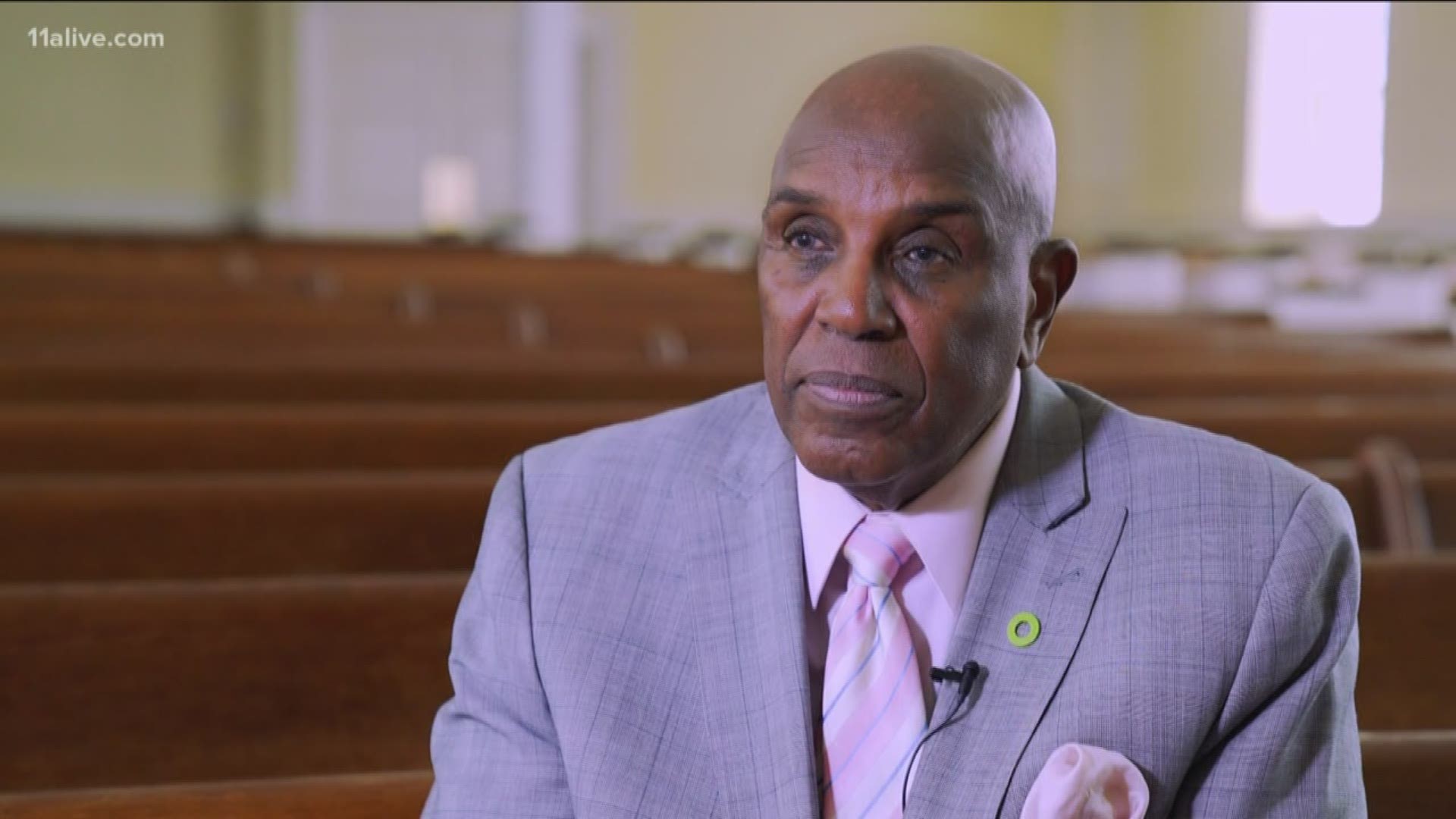A church in late June. A Senate hall in late July.
These two places, at these two moments, show a new side of Atlanta.
At the church, Rev. Gerald Durley steps up to the podium and addresses a Baptist crowd about a subject rarely addressed in the chapel: climate change.
“We are suffering the most,” he says, “yet we know the least about it because climate change is not a priority for us.”
Rev. Durley marched on Washington in the 60s. He served as head pastor at Providence Missionary Baptist Church for 25 years. Now he’s the board chair of Interfaith Power & Light, working to galvanize communities of faith around an oft-ignored subject.
“We must take control now in legislatively in voting around climate change,” he tells the crowd. “I’m out there, but I don’t want to be out there alone. This is the civil rights movement of 2019.”
Watch 11Alive's special report, PLAN G, about how Georgians are taking control of the climate conversation.
In the Senate hall a month later, Atlanta’s mayor sits with four other mayors from across America to discuss this same subject in Congress.
“Climate change may very well be the equity challenge of our time,” Mayor Keisha Lance Bottoms says. “We rank third nationally for increases in the urban heat island effect. If current trends continue, Georgia is projected to see an increase in extreme heat days from 20 days a year to 90 days.”
This appearance comes months after the Atlanta city council approved a plan for city facilities to run completely on clean energy by 2035.
Suddenly, the climate is a meaningful – and immediate – topic.
Recent studies show the effects of climate change in urban environments. Data from NASA shows that urban heat islands like Atlanta – where concrete often overpowers even a “city in a forest” – can run up to eight degrees warmer than suburban and rural environments. And a recent study from the ACEEE found that low-income, Black, and Latino households spent up to three times more of their income on energy. Atlanta had one of the widest gaps.
It is that factor – how climate change disproportionately affects the most vulnerable populations – that united the missions of Rev. Durley and Mayor Bottoms.
“It’s important for me to let people in this community know that climate change is a part of your well-being,” Rev. Durley said. “It’s one thing to get on your knees and pray. It’s another thing, after you’ve prayed and got your faith, to ask, ‘How do you go into action?’”
Mayor Bottoms echoed that view in Washington: "When we are talking to single mothers who are simply trying to keep the lights on, it's very challenging to talk about something like climate change that appears to be something that doesn't matter to every community."
Watch 11Alive's special report, PLAN G, about how Georgians are leading the climate conversation. For more, follow reporter Matt Pearl on Facebook, Twitter, and Instagram.

